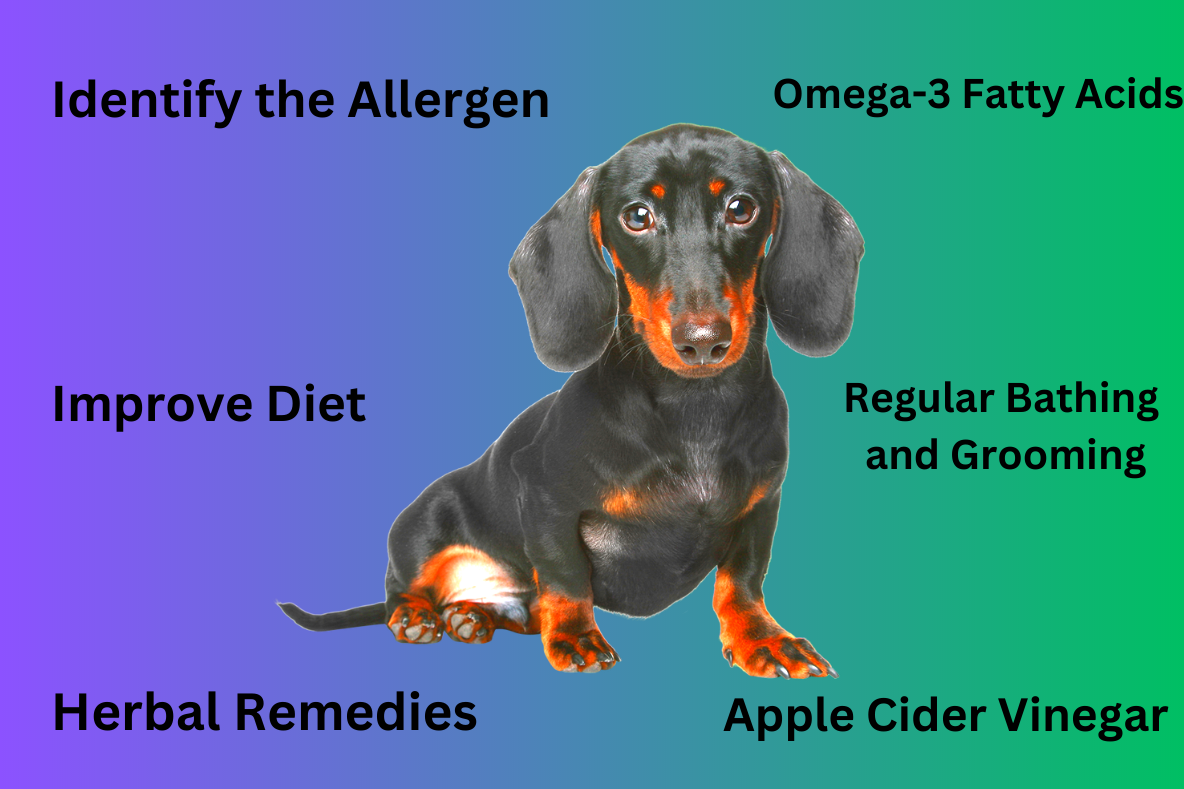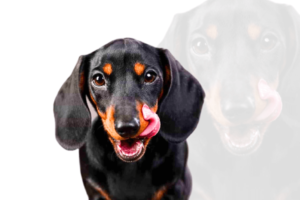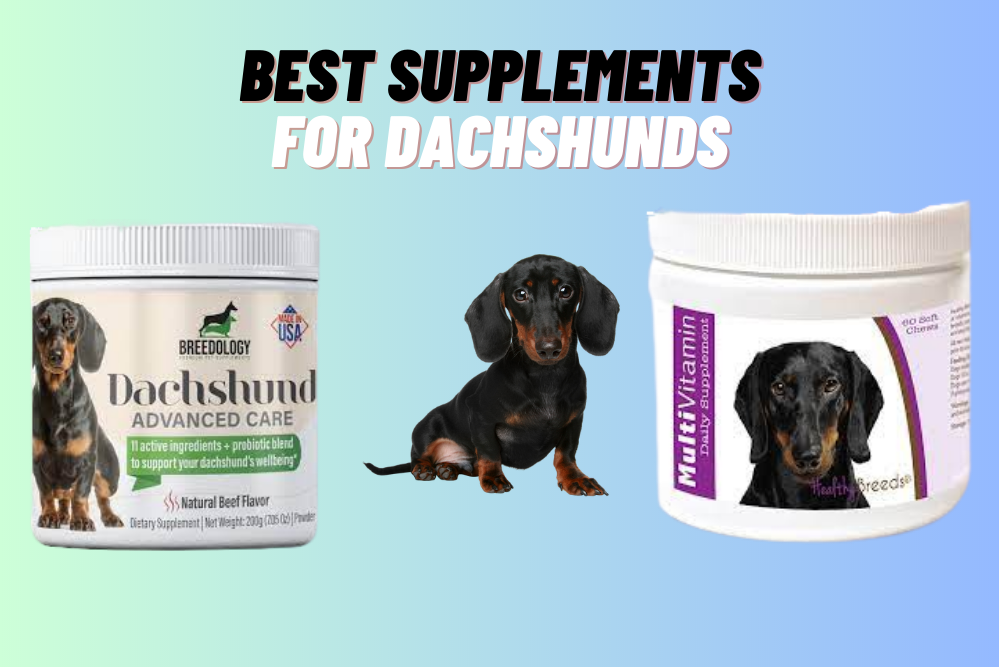Natural Remedies for Dachshund Allergies
Many dachshunds suffer from allergies that lead to itchy, irritated skin. Thankfully, there are several natural remedies for dachshund that can provide relief without the use of medications. Daily supplements of fish oil provide anti-inflammatory omega-3s to reduce skin irritation. Weekly oatmeal baths soothe itchy skin and provide moisture. Rubbing coconut oil into affected areas moisturizes the skin and helps heal rashes.
Adding apple cider vinegar to your dachshund’s diet balances pH levels to deter yeast overgrowth. Local raw honey contains pollens that can help desensitize the immune response and reduce reactions. Probiotic supplements support overall digestive and immune health.
Bathing with natural shampoos containing ingredients like colloidal oatmeal and aloe vera can clean without stripping the coat. Working closely with your vet, these natural remedies can provide soothing relief to your dachshund’s allergies when used consistently. Always monitor your dog’s symptoms in case the stronger medication is needed.
Identify the Allergen
When trying to manage allergies in dachshunds, it’s important to try to identify the specific allergen causing the reaction. Here are some tips.
- Keep a diary noting when symptoms occur. Look for any patterns related to season, location, diet, etc. This can help pinpoint environmental allergens like pollen or household irritants like dust mites.
- Have your vet do intradermal or blood testing. These tests can check for antibodies against common allergens like pollen, mold spores, fleas, and proteins in foods.
- Try an elimination diet under your vet’s guidance. This involves feeding a very restricted diet for several weeks to see if symptoms improve. Then additional foods are added back one at a time to check for reactions.
- Consider when symptoms first began. Allergies that start early in life are more likely to be food-related. Those that begin later often indicate environmental allergens.
- Note if any household changes preceded the onset of symptoms, like moving to a new home, new furniture, or new landscaping.
Once you identify the culprit, steps can be taken to minimize exposure. This detective work in collaboration with your vet will provide the most effective solutions for managing your dachshund’s allergies.
Improve Diet
Making smart adjustments to your dachshund’s diet is one of the most effective ways to reduce allergic reactions. By feeding a high-quality limited ingredient diet tailored for skin sensitivities, you can minimize exposure to potential triggers. Work closely with your veterinarian to identify problem ingredients through elimination trials. Then stick to a consistent diet that avoids those trigger foods. With patience and detective work, you can pinpoint a nutritional plan that keeps allergies at bay.
Here are some tips for improving your dachshund’s diet to help reduce allergies
- Feed a high-quality food designed for skin sensitivities. Look for limited ingredient diets with novel proteins your dog hasn’t eaten before.
- Avoid common allergens like beef, dairy, chicken, and wheat. Discuss hypoallergenic diet options with your vet.
- Stick to one protein and carbohydrate source. Don’t rotate proteins or flavors. This allows you to identify food allergies more easily if they develop.
- Supplement with omega-3 fatty acids from fish oil, which can reduce inflammation. Use dog-specific supplements.
- Make any diet changes gradually to avoid upsetting your dog’s stomach. Transition over 5-7 days.
- Ensure your dog stays well hydrated by providing fresh, filtered water at all times. Dehydration exacerbates skin irritation.
- Avoid unhealthy snacks and table scraps. Stick to treats made with the limited ingredients in your dog’s main food.
- If symptoms improve after a hypoallergenic diet trial, conduct food trials under veterinary supervision to identify problem ingredients.
- Once problem foods are identified, avoid giving your dog any other products containing those ingredients. Read labels carefully.
Adjusting your dachshund’s diet takes some trial and error, but can really pay off in reducing allergic reactions. Work closely with your vet on elimination trials and always transition diets slowly.
Omega-3 Fatty Acids
Supplementing your dachshund’s diet with omega-3 fatty acids can provide relief from allergy symptoms. Omega-3s have powerful anti-inflammatory properties that can reduce itchiness, skin irritation, and rashes. Look for dog-specific fish oil supplements high in EPA and DHA.
Salmon oil and krill oil are excellent choices. Introduce supplements gradually and administer them daily with food. The rich omegas will support your dog’s skin health from the inside out. Omega-3s are an easy, effective addition to your dachshund’s nutritional plan for combating allergies.
Herbal Remedies
Herbal remedies can be a natural and gentle way to support the health and well-being of your Dachshund. While it’s important to consult with a veterinarian before using any herbal remedies, here are a few commonly used herbs that may offer benefits for Dachshunds.
- Chamomile: Chamomile is known for its calming properties and can be helpful for Dachshunds with anxiety or digestive issues. It may help soothe upset stomachs, relieve gas, and promote relaxation.
- Calendula: Calendula is often used topically to soothe skin irritations and promote healing. It can be beneficial for Dachshunds with allergies or skin conditions such as rashes or hot spots.
- Echinacea: Echinacea is commonly used as an immune-boosting herb. It may help strengthen the immune system and support the body’s ability to fight off infections. However, it’s important to note that Dachshunds with autoimmune conditions should avoid echinacea.
- Milk Thistle: Milk thistle is known for its liver-protective properties. It can be beneficial for Dachshunds with liver issues or those taking medications that may affect liver function. Milk thistle may help promote liver detoxification and support overall liver health.
- Ginger: Ginger can be helpful for Dachshunds experiencing nausea, motion sickness, or digestive upset. It may help alleviate symptoms such as vomiting or diarrhea and improve overall digestion.
- St. John’s Wort: St. John’s Wort is often used to support mood and emotional well-being in dogs. It may be beneficial for Dachshunds experiencing anxiety or depression-like symptoms.
It’s important to remember that herbal remedies may not be suitable for all dogs, and the dosage and usage should be determined by a veterinarian familiar with your Dachshund’s specific needs. Additionally, some herbs can interact with medications or have potential side effects, so professional guidance is crucial.
Integrating herbal remedies into your Dachshund’s healthcare should be done under the supervision of a veterinarian who can provide appropriate guidance and ensure the safety and efficacy of these remedies for your specific pet.
Apple Cider Vinegar
Apple cider vinegar is a popular natural remedy that is often used for various purposes, including supporting the health of dogs.
When used in moderation and under the guidance of a veterinarian, apple cider vinegar can offer potential benefits for Dachshunds. Here are some common uses of apple cider vinegar for Dachshunds:
- Flea and Tick Repellent: Apple cider vinegar can be diluted with water and used as a natural flea and tick repellent. A solution of equal parts water and apple cider vinegar can be sprayed on your Dachshund’s coat, avoiding the eyes and sensitive areas. However, it’s important to note that apple cider vinegar may not be as effective as conventional flea and tick preventatives, and it’s crucial to consult with your veterinarian for a comprehensive flea and tick control plan.
- Skin and Coat Health: When used topically, apple cider vinegar may help soothe itchy skin and promote a healthy coat. It can be diluted with water and applied to areas of the skin that are irritated or inflamed. However, it’s important to test a small area first to ensure your Dachshund doesn’t have any adverse reactions. Additionally, if your Dachshund has open wounds or severe skin issues, it’s best to consult with a veterinarian before using apple cider vinegar topically.
- Digestive Support: Apple cider vinegar may have some digestive benefits for dogs. It can help improve digestion and promote a healthy gut environment. However, it’s essential to use apple cider vinegar in very small amounts, as too much can upset the stomach. Consult with your veterinarian to determine the appropriate dosage for your Dachshund and how to administer it.
It’s crucial to note that apple cider vinegar should always be used in moderation and with caution. It’s best to consult with a veterinarian before introducing apple cider vinegar or any other natural remedy into your Dachshund’s routine.
Your veterinarian can provide personalized guidance based on your Dachshund’s specific needs and ensure that the use of apple cider vinegar is safe and appropriate
Regular Bathing and Grooming
Regular bathing and grooming are essential for maintaining the cleanliness, health, and overall well-being of your Dachshund. Here are some key considerations for bathing and grooming your Dachshund:
- Bathing Frequency: Dachshunds generally require bathing every 4-6 weeks, but the frequency may vary based on factors such as activity level, coat type, and individual needs. Overbathing can strip the natural oils from the skin, leading to dryness and irritation. Consult with your veterinarian to determine the optimal bathing schedule for your Dachshund.
- Use Dog-Specific Shampoo: Always use a high-quality, dog-specific shampoo that is gentle and formulated for sensitive skin. Avoid using human shampoos or harsh products that can cause dryness or skin irritation. Your veterinarian can recommend suitable shampoos for your Dachshund based on their specific needs.
- Brushing: Regular brushing helps keep your Dachshund’s coat clean, tangle-free, and healthy. Brushing also helps distribute natural oils, preventing matting and reducing shedding. Use a soft-bristled brush or a grooming mitt suitable for your Dachshund’s coat type. Long-haired Dachshunds may require more frequent brushing to prevent matting.
- Nail Trimming: Regular nail trimming is essential to prevent overgrowth, discomfort, and potential injuries. Dachshunds’ nails should be trimmed every 2-4 weeks, depending on their rate of growth. Use proper dog nail clippers and be cautious not to trim too close to the quick, which can cause bleeding and pain. If you’re uncertain, consult a professional groomer or veterinarian for guidance.
- Ear Cleaning: Dachshunds’ long, floppy ears can trap moisture, dirt, and wax, making them more susceptible to ear infections. Regularly check and clean your Dachshund’s ears using a gentle, dog-specific ear-cleaning solution. Be cautious not to insert anything deep into the ear canal to avoid causing harm.
- Dental Care: Dental hygiene is crucial for your Dachshund’s overall health. Brush their teeth regularly with a dog-specific toothbrush and toothpaste. You can also provide dental chews or dental toys that help reduce plaque and tartar buildup. Regular dental check-ups with a veterinarian are also recommended.
- Professional Grooming: Consider scheduling regular professional grooming sessions for your Dachshund, especially if they have a longer coat. Professional groomers can help maintain the coat, trim excess hair, clean hard-to-reach areas, and provide a thorough overall grooming experience.
Remember to create a calm and positive grooming experience for your Dachshund. Reward them with treats and praise to reinforce positive behavior and make grooming a pleasant routine.
If you encounter any skin issues, excessive shedding, or abnormalities during grooming, consult with a veterinarian for further evaluation and guidance.
Overall, regular bathing and grooming not only keep your Dachshund looking their best but also contribute to their comfort, hygiene, and overall health.
Air Purification:
Air purification can be beneficial for Dachshunds, especially those with respiratory sensitivities or allergies. Improving the air quality in your home can help reduce allergens, pollutants, and irritants that may trigger respiratory issues or discomfort for your Dachshund.
Here are some considerations for air purification:
- HEPA Filters: High-efficiency particulate air (HEPA) filters are designed to capture small particles, including pet dander, pollen, dust mites, and other airborne allergens. Consider using HEPA filters in your home’s HVAC system or using standalone air purifiers with HEPA filters in rooms where your Dachshund spends most of their time.
- Activated Carbon Filters: Activated carbon filters can help remove odors, gases, and chemical pollutants from the air. They are effective at absorbing volatile organic compounds (VOCs) and other airborne chemicals that may contribute to indoor air pollution. Air purifiers with activated carbon filters can help improve the overall air quality in your home.
- Regular Cleaning: Regularly cleaning your home can help reduce allergens and dust that may accumulate in the environment. Vacuuming with a vacuum cleaner equipped with a HEPA filter can effectively remove pet dander and other allergens from carpets and upholstery. Additionally, damp mopping hard floors can help capture and remove allergens.
- Proper Ventilation: Ensuring proper ventilation in your home can help improve air circulation and reduce the concentration of airborne pollutants. Open windows when weather conditions permit and consider using exhaust fans in bathrooms and kitchen areas to expel stale air and bring in fresh air.
- Minimize Smoke and Chemicals: Smoke, including cigarette smoke and even secondhand smoke, can be particularly harmful to Dachshunds and contribute to respiratory issues. Minimize or eliminate smoking inside your home to create a healthier environment for your dog. Similarly, reduce the use of harsh chemicals and opt for pet-friendly, natural cleaning products to minimize chemical irritants in the air.
Remember, while air purification can help improve the air quality in your home, it is important to address any underlying health concerns or allergies your Dachshund may have.
Consult with a veterinarian if your Dachshund exhibits persistent respiratory symptoms or if you have specific concerns about their indoor environment
Environmental Modifications:
Environmental modifications can play a crucial role in creating a comfortable and safe space for your Dachshund. These modifications can help reduce potential allergens, provide a suitable living environment, and minimize triggers for various health conditions.
Here are some environmental modifications to consider for your Dachshund:
- Allergen Control: Identify and minimize potential allergens in your home. Regularly clean and vacuum to reduce dust, pet dander, and pollen. Use allergen-proof covers for your Dachshund’s bedding and wash it regularly. Consider keeping your Dachshund’s living area separate from areas prone to allergen accumulation, such as carpeted rooms.
- Indoor Air Quality: As mentioned earlier, ensure proper ventilation and consider using air purifiers with HEPA filters to remove airborne allergens and pollutants. Avoid using strong chemicals or heavily scented products, as they can irritate your Dachshund’s respiratory system.
- Temperature Control: Dachshunds are sensitive to extreme temperatures. Keep your home at a comfortable temperature range, avoiding excessively hot or cold conditions. Provide your Dachshund with cozy bedding and consider using heating pads during colder months, especially for older or arthritic Dachshunds.
- Noise Reduction: Dachshunds, like many other dogs, can be sensitive to loud or sudden noises. Create a calm environment by minimizing noise levels and providing a quiet space for your Dachshund to retreat to when needed. Consider using white noise machines or playing soothing music to help mask external noises.
- Safety Measures: Dachshunds have unique physical characteristics, including their long bodies and short legs, which make them prone to certain injuries. Ensure your home is Dachshund-proofed by removing hazards such as low furniture with sharp edges, loose wires, toxic plants, and inaccessible high areas. Use baby gates or barriers to restrict access to potentially dangerous areas.
- Outdoor Safety: When allowing your Dachshund outdoors, ensure the environment is safe and secure. Dachshunds are known to be avid diggers, so secure your yard to prevent escape or encounters with other animals. Provide shaded areas to protect them from excessive heat and avoid walking on hot pavement during summer months to prevent paw pad burns.
- Exercise and Enrichment: Dachshunds need regular exercise and mental stimulation. Designate a safe and enclosed space in your home or yard for playtime and exercise. Provide interactive toys and engage in activities that cater to their natural instincts, such as scent games or puzzle toys.
By implementing these environmental modifications, you can create a comfortable and supportive living environment for your Dachshund. However, it’s important to remember that each Dachshund is unique, and their specific needs may vary.
Regularly assess and adapt your environmental modifications based on your Dachshund’s well-being and any specific health considerations they may have. Consult with a veterinarian for personalized advice regarding your Dachshund’s specific needs and environmental modifications
Regular Veterinary Check-ups:
Regular check-ups with your veterinarian are essential to monitor your Dachshund’s allergies and overall health. Your veterinarian can provide guidance, recommend additional natural remedies, and adjust treatment plans as necessary.
What are some natural remedies for Dachshund allergies?
Some natural remedies for Dachshund allergies include using probiotics, coconut oil, omega-3 fatty acids, herbal supplements like chamomile or nettle, and topical remedies such as apple cider vinegar or calendula.
How can probiotics help with Dachshund allergies?
Probiotics can help support your Dachshund’s gut health and strengthen its immune system. A healthy gut can reduce allergic reactions and improve overall tolerance to allergens.
How does coconut oil benefit Dachshunds with allergies?
Coconut oil has anti-inflammatory properties and can help soothe itchy skin caused by allergies. It can be applied topically to moisturize the skin and alleviate discomfort.
What role do omega-3 fatty acids play in managing Dachshund allergies?
Omega-3 fatty acids have anti-inflammatory effects and can help reduce allergic responses in Dachshunds. Adding fish oil or flaxseed oil to their diet can support healthy skin and coat.
Are herbal supplements effective in treating Dachshund allergies?
Some herbal supplements like chamomile or nettle have natural antihistamine properties and can help alleviate allergy symptoms in Dachshunds.
However, it’s important to consult with a veterinarian before using any herbal remedies to ensure safety and appropriate dosages for your Dachshund
Conclusion:
In conclusion, natural remedies for dachshund can be a helpful adjunct to managing Dachshund allergies. Probiotics, coconut oil, omega-3 fatty acids, herbal supplements, and topical remedies like apple cider vinegar or calendula offer potential benefits for soothing allergic symptoms and supporting your Dachshund’s overall well-being.
However, it is crucial to consult with a veterinarian before introducing any natural remedies for dachshund to ensure they are safe and appropriate for your Dachshund’s specific needs.
Veterinary guidance will ensure proper dosages, minimize risks, and address any underlying health conditions. Natural remedies, when used in conjunction with proper veterinary care, can provide a holistic approach to managing Dachshund allergies and improving their quality of life.






